 AQUA NOR 2025
AQUA NOR 2025![]()
![]()
Abstract guidelines Aqua Nor 2025
Hidden text
Abstract guidelines Aqua Nor 2025
Please read these instructions carefully before preparing your abstract. Scroll down to submit your abstract.
- The deadline for abstract submission is 23:59 CEST (UTC +2) May 30th 2025
- Notice of acceptance will be e-mailed to the submitting author within June 2025
- The organizers reserve the right to accept or refuse any abstract
- All presentations will have the opportunity of publishing a research paper in a Research Topic established in Frontiers of Marine Science. Topic editors that act as editors for the published papers will be appointed and approved by Frontiers latest May 16th.
Remember to express intention of publishing in the registration form
- If you have any questions, please contact us at aquanor@liwlig.no
Writing guidelines
- Abstract must be written in English
- Maximum number of words in total in the abstract body text is 300
- Abstract text: Please include objectives, method, results, conclusions
- Do not include tables, graphs or special symbols, references or key words in abstracts
Look up guidelines, Research Topics and more: https://www.frontiersin.org/journals/marine-science/sections/marine-fisheries-aquaculture-and-living-resources
Submission types
You can choose between the following submission types, both with option of publication:
- Oral - in-person presentation
- Oral - digital/pre-recorded
Frontiers of Marine Science
All presentations will have the opportunity for publication in an established Research Topic: “Towards an expansion of sustainable global marine aquaculture-2” ” in Frontiers of Marine Science. Topic Editors will be appointed and will handle the review reports delivered for the submitted manuscripts in the review process.
Review criteria
All abstracts will be reviewed by at least two scientific specialists acting as reviewers invited by Frontiers.
The Topic Editors of the present Research Topic make their decision on the manuscript based on the final assessment of the reviewers and the Specialty Editor of the section. The criteria of manuscript review will comprise quality and relevance.
Sessions
There will be 2 sessions organized for Aqua Nor 2025. You are invited to submit an abstract that is relevant for one of the scientifically broad sessions below:
Session 1
New production concepts and engineering challenges for marine aquaculture 2050
( Wednesday August 20th and Thursday August 21st)
Session chairs:
Xinxin Wang xwa@akvaplan.niva.no
Malene Malchus Fosse malene.m.fosse@ntnu.no
Joachim Larsen Marthinsen joachim.l.marthinsen@ntnu.no
The diversity of production concepts for industrial marine fish farming has increased over the last decades. Cage technologies has up to these days been most common because it has been successful and affordable for coastal aquaculture. Some key and economically successful companies have more recently initiated exploration and testing of new avenues, among others stimulated by research as well as Governments and financial supporting instruments. Main new concepts for large scale fish farming are open ocean based, land based, closed and semi-closed systems in the sea, submersible cage systems for deepwater, and many other related production systems. Cage production is however still believed to be most important for coastal aquaculture for the nearest future.
The main objective for the session is to gather and present information on R&D and applications of new marine aquaculture concepts, combination of systems and options for integration of organisms on lower trophic level with farmed marine fish.
Papers on the below and related topics are invited, including the following examples:
· Open Ocean fish farming, in open national and international waters.
· Land based fish farming, including on-growing
· Further development and use of RAS technologies
· Closed and semi-closed systems in the sea, for all or some developmental stages
· Submersible cage-like systems
· Systems for integrated multitrophic production
· New developments of cage systems for coastal aquaculture
· Combinations and other related systems.
Presentations can include biological, technological and engineering aspects and combination of several aspects that are important for economic, social and environmentally sustainable development of the marine aquaculture industry.
Session 2
Services and supporting activities of sustainable development of marine aquaculture
(Tuesday August 19th and Wednesday August 20th)
Session chairs:
Inka Anglade Inka.Anglade@sintef.no
Clara Pauline Sauphar clara.sauphar@ntnu.no
Keshuai Li kesli@biomar.com
Industrial marine aquaculture is more than production concepts and engineering. Modern aquaculture is made profitable through long lasting and broad scientific and industrial R&D efforts of services and other supporting aspects made over the last decades. Such important related and supporting aspects are feed developments and production, health aspects and environmental influence, together with many other more specialised aspects and their challenges. Most aspects of services and supporting activities interact indirectly with engineering, but has their own scientists, actors and industries.
The main objective of the session is to gather and present information on R&D efforts and applications of new aquaculture supporting means and aspects that can support a further sustainable development of marine aquaculture.
Presentations on the below and related topics, but not limited to the following examples of challenges, are invited:
· New developments on fish health and welfare aspects
· Sea lice and other biological interactions
· New feed concepts, acknowledging limited availability of new feed resources.
· New large scale feed resources, with protein - long chain n-3 fatty acids
· Environmental interaction with surface water ecosystems
· Environmental aspects of new farming system
· Instruments, ICT and AI methods aquaculture sustainable development
· New upcoming maritime aspects and logistics
Presentations can include biological, technological and engineering aspects and combination of all aspects that are important for economic, social and environmentally sustainable development of the aquaculture industry.